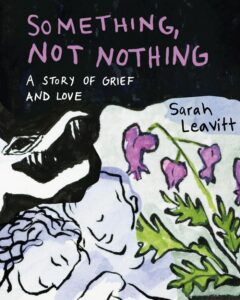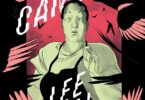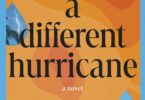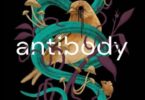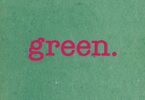Sarah Leavitt, Something, Not Nothing: A Story of Grief and Love (Arsenal Pulp Press, 2024), 152 pp., $27.95.
Sarah Leavitt’s Something, Not Nothing is a poignant and raw exploration of grief, art, and joy in the aftermath of tremendous loss. In this collection of short comics, Leavitt shares the artwork she created after the death of her partner of twenty-two years, Donimo, who was herself an artist and activist. After a long and harrowing journey with chronic pain and illness, Donimo chose to pursue a medically assisted death (MAID). She died in April 2020. As Leavitt describes it:
This is a collection of comics I made during the first two years without her. I think of them as a kind of travel diary, a record of my exploration of the unfamiliar new world I found myself in.
Something, Not Nothing begins in black and white, filled with scribbles and jagged, anxious lines. These pages hold the weight of Donimo and Leavitt navigating the complex journey toward MAID. In these pages, Leavitt does not depict herself whole—she is fragmented, made up of shadows and angles. Single words and fragments take up panels and bump up against one another. This embodiment of uncertainty and rumination vibrates off the page and feels hot to the touch.
Both Leavitt and Donimo are terrified—terrified that Donimo will die, and terrified that she won’t. They make a deal—they will continue to look for ways for Donimo to live, and also for her to die.
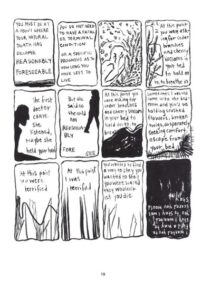
Page excerpted from Something Not Nothing: A Story of Grief and Love by Sarah Leavitt, published by Arsenal Pulp Press, 2024. Reprinted with permission from the publisher.
Colour first appears when MAID seems possible. It doesn’t gradually seep in; it bursts across the page. The black lines here are softer—the first foreshadowing of how grief and joy are intertwined. Then the next page returns to black and white—as a doctor refuses Donimo’s request because she could not “reasonably foresee” her death (at that time, this was a legal requirement for MAID eligibility). Throughout Donimo’s life, the medical system and doctors failed her—this is the first example we see, but later on it is revealed two doctors had said they could fix her—but of course they failed and then vanished.
A few short pages later, they find the first doctor who approves Donimo’s MAID request, who says that she will find the second doctor whose approval would also be necessary (because the authorization of a MAID request legally requires evaluation by two healthcare professionals). Leavitt writes, “Her words were holy and terrible.” Though Something, Not Nothing is a graphic novel, the beauty and precision of the language read like poetry.
There is so much bravery and queer kinship in these pages—from the moment Leavitt realizes she isn’t strong enough to carry Donimo down the stairs, so a friend comes over every day to help, to the moment when a social worker tells Leavitt, “You are walking her to the door,” and when Leavitt whispers in Donimo’s ear during her final moments.
Roughly halfway through the book we meet a cast of new characters—Therapy Pony, Sad Bird, and Cheetah. Sad Bird represents Leavitt while Cheetah represents Donimo. Through Leavitt’s recollections and the embodiment of Cheetah, the reader begins to feel they know Donimo. Leavitt describes Cheetah: “Cheetah is regal; Cheetah has severe chronic pain.” Sad Bird and Cheetah traverse a fantastical forest, a limbo-like place where Cheetah becomes translucent, then they fly over flowers together. Their interactions are unlimited, beautiful, and otherworldly.
A consistent and spirited presence throughout the book is Jackson, the dog who Leavitt and Donimo loved. Leavitt writes that Jackson hated the flirtatiousness between them. Leavitt’s care-taking of Jackson after Donimo dies illustrates how when we lose someone we love, we also lose the myths we created with them. Suddenly, there is no flirtatiousness for Jackson to hate.
Pushing up against form even harder is a series of pencil crayon drawings with no panels. Underneath what could be a cityscape or perhaps floating shapes, a prose poem appears:
Separation
When you meet, when you are met, when you become flammable and liquid and the air is full of both of your bodies and everyone has stopped breathing, or I mean is only breath and fire, then build strong walls to contain and leave wide spaces in between for change of state.
The poem, like the drawing, hovers in the air—breathless yet solid.
Throughout the book, grief transforms Leavitt. Initially, that transformation feels terrifying—what once was familiar now seems strange, colours are almost too bright to bear, and the scale of the world shifts—what was once large is now miniscule. Leavitt’s ability to convey these internal shifts is stunning, as the comic panels capture how grief warps perception.
More of Leavitt’s memories of Donimo surface in the last third of the book. She describes how Donimo used to shake cherry trees so they would drop petals on Leavitt. It is such a beautiful act of love and one that feels distinctly queer.
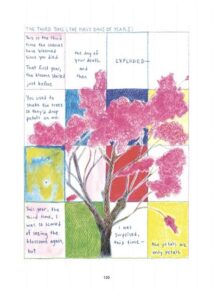
Page excerpted from Something Not Nothing: A Story of Grief and Love by Sarah Leavitt, published by Arsenal Pulp Press, 2024. Reprinted with permission from the publisher.
As the book progresses, Leavitt wrestles with the tension between falling in love and navigating her loss. While on a trip with a new love, she remembers Donimo, but is not destroyed by the memory.
Near the end of the book, Leavitt writes, “I’m finishing this comic two years after you died. Now I know that both of us left. We left the darkened room for the spot beside the water. Where you died. And both of us began our solitary journeys.”
Something, Not Nothing is a book I wish I had during my own grief. As much as it is a travel diary for Leavitt, it is a travel diary for others—a gift.
The book’s epigraph—the poem “When” by Gregory Orr—reads in part, “You had to change your footing. / You had to move, too.” The spirit of this sentiment is woven through every page of Something, Not Nothing—even after what feels unimaginable comes to pass, we find ourselves moving—no matter how impossible it seems.
 Jasmine Ruff (she/her) is a queer writer living on the ancestral and unceded lands of the hən̓q̓əmin̓əm̓ and Sḵwx̱wú7mesh speaking peoples (colonially known as Vancouver, B.C.). She holds a Master of Fine Arts from the University of British Columbia. Her work has been published in The Ex-Puritan, CRAFT Literary, Split Lip Magazine, and elsewhere. Find her on social media @jasmineruff411.
Jasmine Ruff (she/her) is a queer writer living on the ancestral and unceded lands of the hən̓q̓əmin̓əm̓ and Sḵwx̱wú7mesh speaking peoples (colonially known as Vancouver, B.C.). She holds a Master of Fine Arts from the University of British Columbia. Her work has been published in The Ex-Puritan, CRAFT Literary, Split Lip Magazine, and elsewhere. Find her on social media @jasmineruff411.

